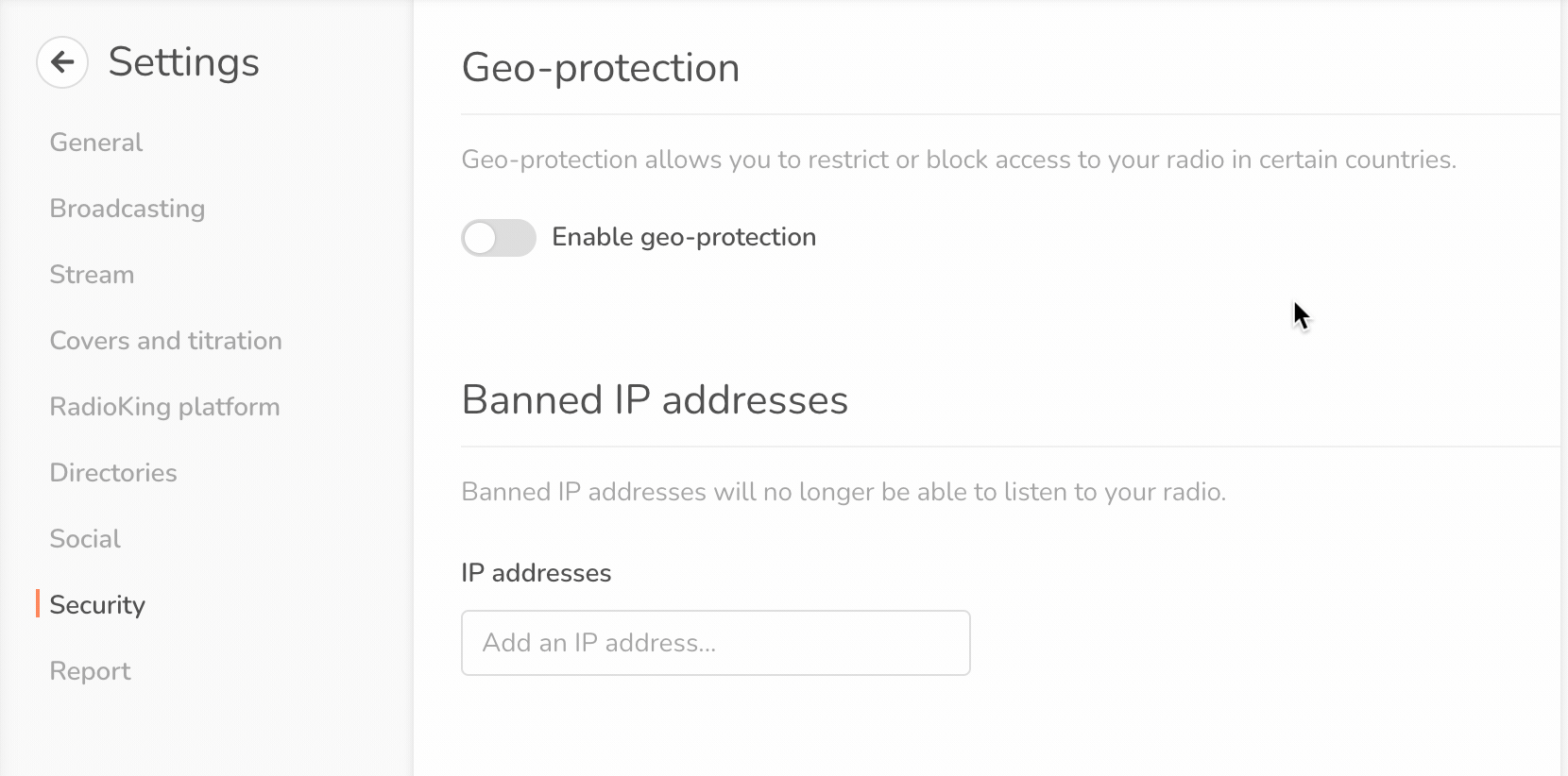The advent of internet radio has made it easier than ever to reach a global audience, offering music, talk shows, and niche content to listeners worldwide. But alongside the creative and technical aspects of starting an internet radio station comes an important question: Do I need a broadcast license for my online radio? The answer depends on various factors, including the type of content you plan to broadcast, the geographic areas you target, and the rights associated with the music or materials you use.
This article will walk you through the essential considerations for obtaining the right licenses, focusing on music licensing for online radio stations. Whether you’re a hobbyist or an entrepreneur, this guide will help you navigate the legal landscape of internet broadcasting.
1/ Understanding Broadcast Licensing
2/ Why Copyright Law Matters
3/ Types of Music Licenses
4/ When do you need a broadcast license?
5/ Licensing Costs for Internet Radio
6/ Consequences of Broadcasting Without a License
7/ Steps to Ensure Compliance
Understanding Broadcast Licensing
A broadcast license is a legal requirement that allows a radio station to transmit content to its audience. For traditional FM/AM stations, these licenses are issued by government agencies like the Federal Communications Commission (FCC) in the U.S. or Ofcom in the UK. However, internet radio operates in a different space. While internet broadcasters don’t need FCC-style frequency licenses, they must still adhere to copyright laws, particularly when broadcasting music.
Why Copyright Law Matters
Music copyright law exists to protect the intellectual property of creators, including composers, lyricists, and performers. When you broadcast music, you’re essentially “publicly performing” copyrighted material. This performance, even if it’s digital, requires permission from the copyright holders. Without proper licensing, your station could face fines, lawsuits, or even shutdowns.

Types of Music Licenses for Internet Radio Stations
To legally stream music on your internet radio station, you’ll typically need several licenses. These cover different aspects of music usage, including performance rights, mechanical rights, and master recordings.
1. Public Performance License
A public performance license is required to broadcast copyrighted music to an audience, whether live or pre-recorded. It ensures that songwriters and publishers are compensated for their work when their music is publicly performed.
In many countries, performance rights organizations (PROs) handle these licenses. Depending on your location, you’ll need to work with the relevant PROs:
- United States: ASCAP, BMI, SESAC, and Global Music Rights (GMR)
- United Kingdom: PRS for Music and PPL
- Canada: SOCAN
- Australia: APRA AMCOS
To cover a wide range of music, it’s often necessary to obtain licenses from multiple PROs.
2. Sound Recording License (Digital Performance Rights)
If you plan to stream pre-recorded music, you’ll need a sound recording license. This license covers the rights of the artists and record labels for the specific recordings being broadcasted.
In the U.S., for example, SoundExchange is the organization that manages digital performance rights for non-interactive streaming services (like internet radio).
3. Mechanical License
A mechanical license is needed if your station offers downloads of music or streams that allow listeners to replay tracks on demand. While this is less common for traditional internet radio stations, it’s important for hybrid models that combine on-demand and live streaming.
4. Synchronization License
If you’re incorporating music into visual content, such as live video streams or promotional videos for your station, a synchronization license (sync license) is required. This is especially relevant for internet radio stations that also have a visual component, like YouTube live shows.
When You Need a Broadcast License for Internet Radio
Now that you understand the types of licenses, let’s explore specific scenarios where you would (or wouldn’t) need them:
Scenario 1: Broadcasting Copyrighted Music
If your internet radio station plays copyrighted music, you absolutely need a public performance license and a sound recording license. These licenses ensure that songwriters, performers, and record labels are compensated.
For example:
- A station streaming top 40 hits will need licenses from PROs (for public performance) and SoundExchange (for sound recording).
- A jazz station playing classic recordings would still require similar licensing.
Scenario 2: Broadcasting Royalty-Free or Public Domain Music
If your station exclusively plays royalty-free music or tracks in the public domain, you don’t need a license for those specific songs. However, you must ensure the music truly falls under these categories:
- Royalty-free music: You pay once for a license or use free tracks with appropriate credit.
- Public domain music: Compositions and recordings that are no longer under copyright protection.
Even with royalty-free music, some platforms may require proof of usage rights to avoid potential claims. Take a look at this article for more information.
Scenario 3: Streaming Original Content
If you’re only broadcasting your own original music or spoken content (like podcasts or talk shows), you don’t need a music license. However, if you collaborate with guest musicians or incorporate background music, you may need appropriate permissions.
Scenario 4: On-Demand Streaming
If your station allows listeners to choose tracks or replay past broadcasts, you may need additional licenses, including mechanical licenses. Services like Spotify operate under a combination of public performance, sound recording, and mechanical licenses.
Licensing Costs for Internet Radio
The cost of licensing depends on several factors:
- Audience Size: Larger audiences require higher fees since they represent a broader “performance.”
- Geographic Reach: International broadcasts may require licensing agreements in multiple countries.
- Music Library: The more music you play, the more extensive your licensing needs.
For small-scale internet radio stations, the fees may range from a few hundred to a few thousand dollars annually.
Consequences of Broadcasting Without a License
Running an unlicensed internet radio station is risky:
- Legal Penalties: Fines for copyright infringement can be substantial, often reaching tens of thousands of dollars per violation.
- Service Suspension: Hosting platforms or internet service providers may be required to shut down unlicensed streams.
- Reputation Damage: Copyright disputes can harm your station’s credibility and brand.
Steps to Ensure Compliance
Follow these steps to legally operate your internet radio station:
- Determine Your Content: Decide whether you’ll stream copyrighted, royalty-free, or original music.
- Identify Licensing Needs: Use the scenarios above to understand what licenses you require.
- Contact Licensing Organizations: Reach out to PROs and SoundExchange (or equivalent organizations in your region) to secure appropriate licenses.
- Document Your Rights: Keep records of all licensing agreements and permissions.
What is geo-protection and how can I use it?
RadioKing offers you the possibility of choosing which countries can or cannot access your radio station thanks to the geo-protection feature. This feature can help protect you from any legal issues if your music license doesn’t cover specific countries.
Simply head over to Settings > Security in your Radio Manager to activate the option and select the countries you want to allow or block:

Broadcast License: FAQ
Do I need a license for my talk show?
For radio stations with talk shows where no copyright music is broadcast, then a music license is not necessary to broadcast online.
What if my listeners are outside of the country I broadcast from?
You’ll need to check the licence you already have to see if it covers the countries you intend to broadcast to. If it doesn’t, we suggest that you contact the relevant music authorities in the countries you’re listeners are in to see what licences you will need.
Does RadioKing provide a music license?
No, RadioKing does not provide broadcasting rights. We host your radio station and provide you with the tools to stream online to anyone with an Internet connection.
Do I need a license to use royalty free music?
Yes, if you want to broadcast royalty free music you’ll need to pay a one-time licence fee. This will provide you with the rights to play the music wherever you want, as many times as you want without additional costs!
Getting a broadcast License in different countries
Australia: PPCA
Argentina: SADAIC
Belgium: SABAM
Brazil: ABERT, ABRAMUS, UBC
Chile: SCD
Columbia: SAYCO
Cuba: ACDAM
Cyprus: CRTA
Dominican Republic: SGACEDOM
Ecuador: SAYCE
Finland: TEOSTO
France: SACEM
Germany: GEMA, GVL
Greece: GEA
Guatemala: AEI
India: IPRS
Indonesia: ORARI
Ireland: PPI
Italy: NUOVOIMAIE
Japan: JASRAC
Kenya: PRISK, KAMP, MCSK
Lithuania: LRMD
Luxembourg: SACEM Luxembourg
Mexico: SACM
Netherlands: SENA, BUMA/STEMRA
New Zealand: APRA
Peru: APDAYC
Philippines: FILSCAP
Poland: ZPAV, ZAIKS, STOART, SAWP
Portugal: ANACOM, ERC, SPA, PASSMUSICA
Romania: CREDIDAM
Russia: VOIS
South Africa: CAPASSO, ICASA
Spain: SGAE
Sweden: STIM
Switzerland: SUISA
United Arab Emirates: TRA
Uraguay: AGADU
Venezuela: SACVEN
West Africa: MOICI
